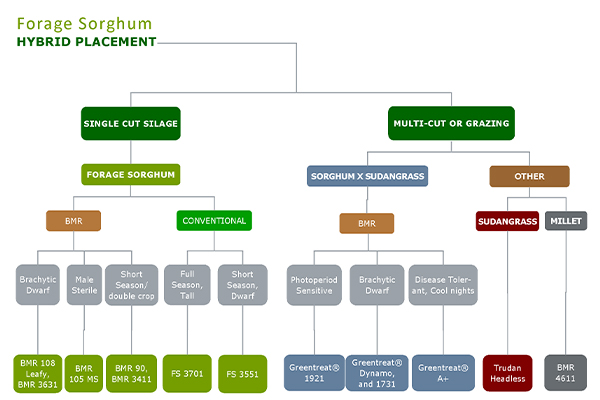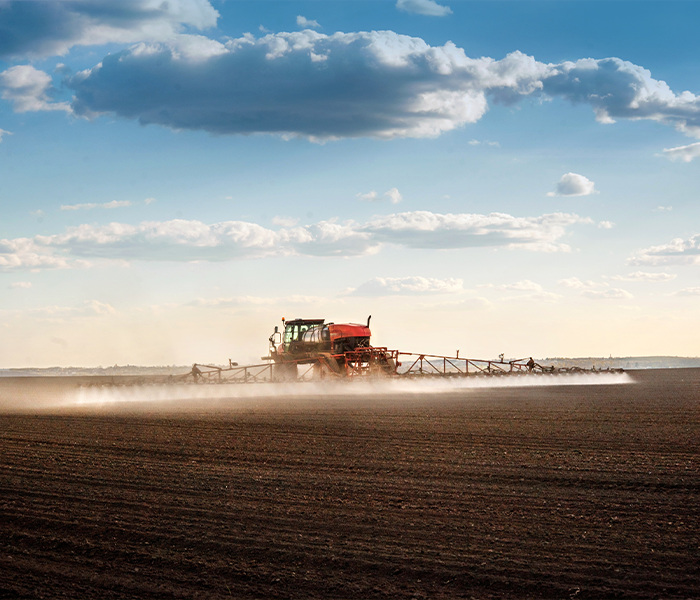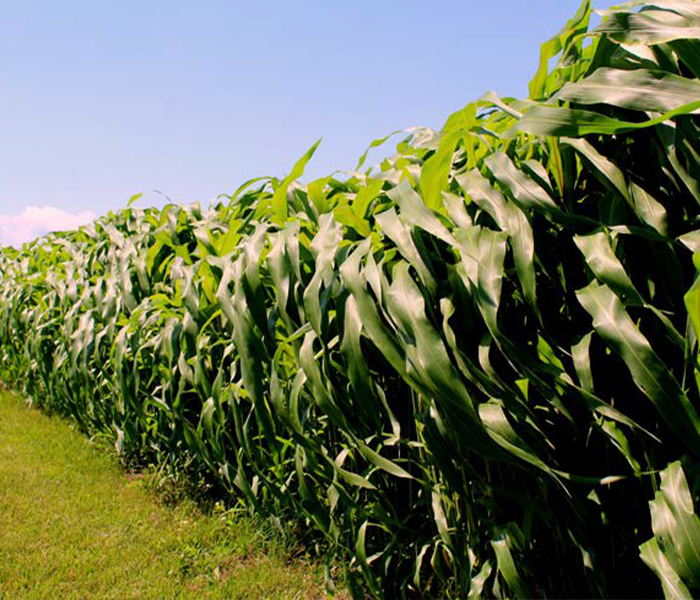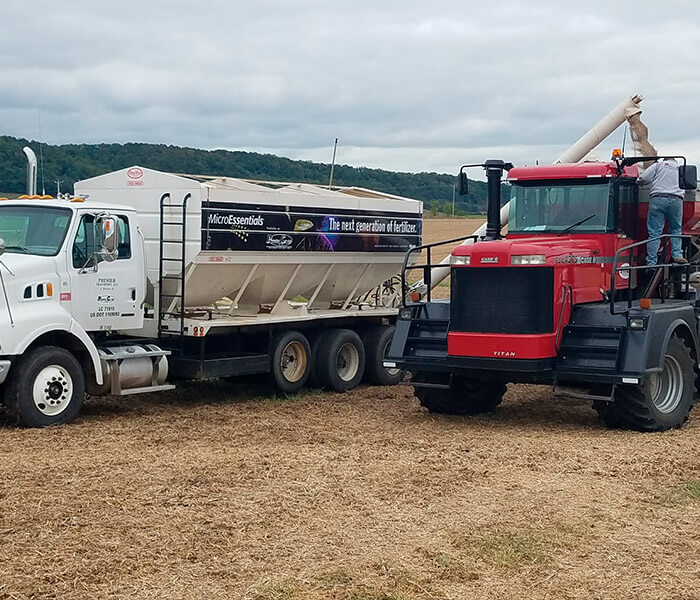Forage Sorghum
Each spring farmers face different challenges. One challenge is alfalfa failing to over winter, and another is wet acres. The answer to both of these challenges is forage sorghums.
Benefits
Genetics
Improved plant genetics provide excellent nutrition and tonnage, with very high total plant digestibility and palatability.
Economics
Sorghums have an economic advantage over corn by producing more with less.
- Sorghums can produce yields equal to corn silage and are extremely productive, even on marginal soils.
- Sorghums have a higher tolerance to stresses such as drought, heat and salinity.
- Sorghums use about 30 to 50 percent less water than corn to produce similar yields.
- Sorghums do not require the same high level of soil fertility as corn — about 30 percent less nitrogen is needed to achieve tonnage yields for sorghums similar to those for corn.
Sorghum Plant Types
- Forage sorghums — single-cut, best used for silage
- Sorghum x sudangrass — multi-cut, best used for haylage, dry hay or grazing
- Sudangrass — multi-cut, best used for hay and grazing
- Pearl millet — multi-cut, best used for grazing, dry hay and for horses

Fill out the form below to contact a Premier agronomist and learn more about how using forage sorghum could benefit your operation
Todd Beuthin
Location Manager





